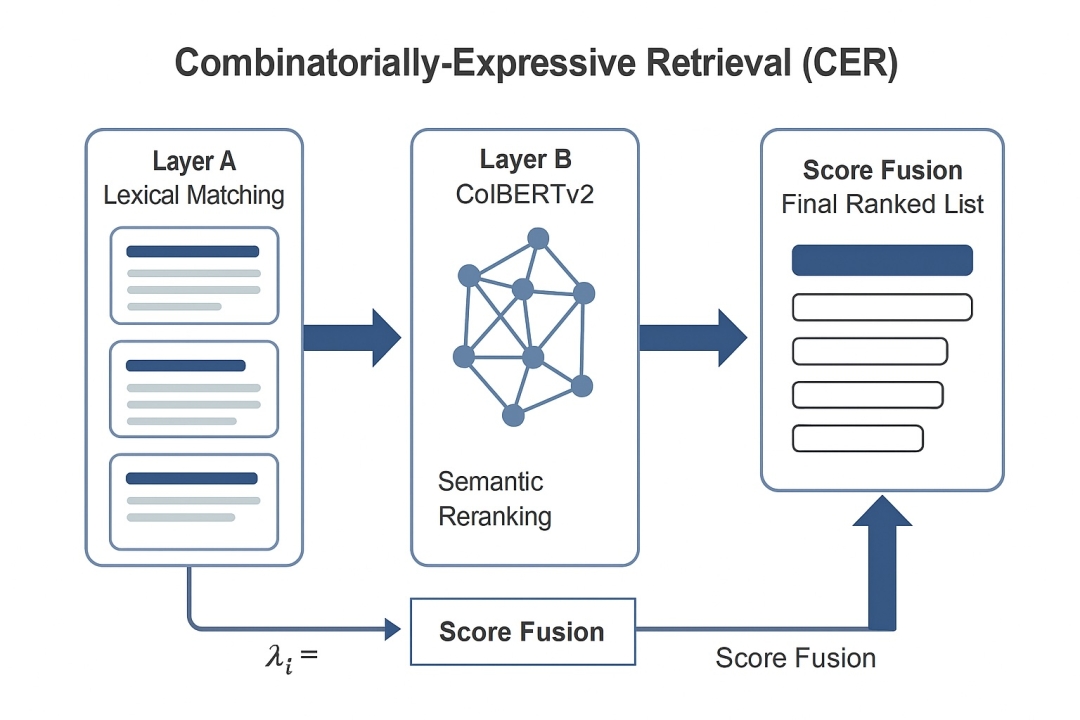HOUSTON – A Houston-based machine learning engineer with a Ph.D. in artificial intelligence has introduced a hybrid retrieval system aimed at making AI search faster, more precise and practical on everyday hardware.
In a preprint published Sept. 10 on Zenodo, Umair Akbar presents “Combinatorially-Expressive Retrieval” (CER), a three-stage framework that combines keyword and semantic methods to answer multifaceted queries—such as “climate change effects on urban farming in Southeast Asia”—without requiring large clusters or specialized accelerators.
CER sequences BM25 for high-recall lexical matching, ColBERTv2 for late-interaction semantic reranking, and a cross-encoder for precise final scoring. According to the paper, this “smart fusion” preserves the relative order of strong candidates across stages and scales combinatorially with query complexity, addressing limitations of dense vector retrievers that compress meaning into fixed-dimensional embeddings.
On the LIMIT benchmark—designed to expose dense retrievers’ blind spots—CER reports 97.4% recall at 100 results and 96.4% at two results, substantially outperforming typical top-10 recall for dense baselines. An optimized configuration processed queries in 0.37 seconds on a single Apple M4 Max chip, suggesting the approach can run on widely available machines while maintaining high accuracy.
“This isn’t about throwing more compute at the problem,” Akbar said. “It’s about smart fusion that preserves orderings and scales combinatorially.”
The work targets a quiet but essential layer of modern AI: retrieval. From search engines and legal discovery to medical decision support and retrieval-augmented generation (RAG), systems depend on surfacing the right evidence at the right time. When retrieval narrows or drifts, downstream models can miss critical context or produce confident but incorrect responses. By allowing lexical and semantic signals to reinforce rather than compete, CER aims to keep ranking capacity “unbounded” as concepts accumulate—without the typical latency penalties.
Akbar’s preprint emphasizes practical implementation details and reproducibility. The paper outlines how monotonic linear score fusion can maintain stability across stages, and includes open materials to encourage testing and adoption by researchers and engineers. The design, he says, is meant to be incremental and deployable: a way for small teams to achieve state-of-the-art retrieval quality without re-architecting entire systems or expanding budgets.
The release arrives amid surging interest in retrieval-heavy pipelines that power chat assistants and domain-specific copilots. CER’s reported combination of accuracy, speed and hardware efficiency positions it as a candidate for integration into existing RAG stacks, enterprise search and tools that must answer compound, real-world questions.
The preprint, “Unbounded Ranking Capacity with Combinatorially-Expressive Retrieval,” is available on Zenodo (DOI: 10.5281/zenodo.17089100).
Media Contact
Company Name: Umair Akbar
Contact Person: Umair Akbar
Email: Send Email
Country: United States
Website: https://github.com/uakbr

